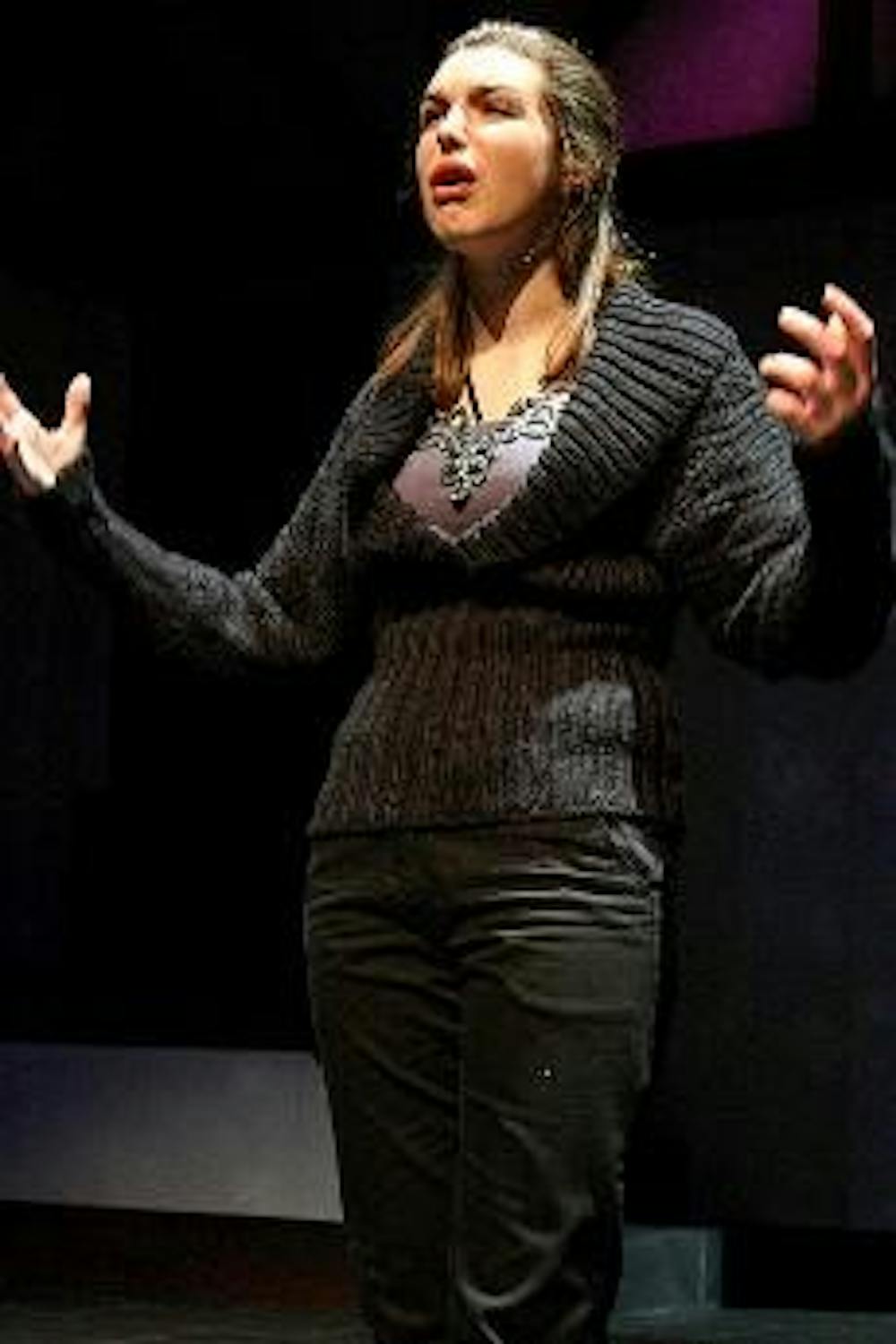There are two types of theatergoers: Those who fear Shakespeare and those who adore him. Both types, however, will likely find that director Karl Kippola's vision for the Department of Performing arts production of "Hamlet" is enlightening.
The drama may be historic and the Elizabethan language cryptic, but Kippola allows each audience member to see the story in its simplest terms: A college boy who just happens to be a prince must avenge his father's murder.
"People keep performing this play over many generations and it just keeps playing well in any era," Kippola said.
This version of "Hamlet," however, comes with a twist: The characters are cross-cast by gender: Women play the male characters and men play the female characters. Kippola's world of reversed gender roles serves to empower feminine virtues without emasculating more masculine stereotypes.
The play opens with a preshow that serves a dual purpose. It justifies why the male and female characters are playing against type while also introducing the audience to the major players in the performance.
Anne Veal, a senior in the College of Arts and Sciences and veteran player in the DPA, plays the title role with confidence and skill.
"The first person I had in mind to play Hamlet was a woman," Kippola said. "So I built the original idea around that premise. I wanted to experiment with this play being gender-blind and see how that worked out."
This was not the only way the director tweaked the play. Kippola cut about a third of the script in order to focus on the personal and romantic narratives.
"I wanted this to be about Hamlet's story and struggle," he said.
"The play is between four and five hours if it is performed unabridged. That is prohibitive. It is possible to eliminate a lot of obscure references and minor characters in order to find the simplest and most direct way to tell the story."
Despite the cross-casting and script changes, the tone of the play remains largely intact. The set is empty, grey and highlighted with long shadows. The lighting effects intensify a foreboding aura. The soundtrack is littered with ominous and surprisingly appropriate music from independent rock bands. With few set adjustments and minimal props, the acting itself advances the tragedy.
The DPA's performance of "Hamlet" is one of many Shakespearean productions running during the six-month "Shakespeare in Washington" festival. It will run concurrently with the DPA comedy "I Hate Hamlet" until Feb. 24 at the Greenburg Theater.
Besides the scheduled performances, there will also be two high school matinee performances of the show. Kippola is thrilled that the play will be performed to a diverse audience and believes that now is a great time to be a theatergoer in Washington.
"It is really exciting for us to be part of the Shakespeare festival with so many other theaters around the city," Kippola said. "This play is very challenging, but I think we have made it accessible to a younger audience. We are simply trying to make it as engaging as possible and tell the story that we want to tell"





